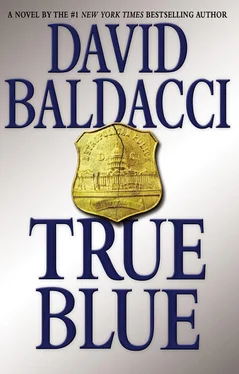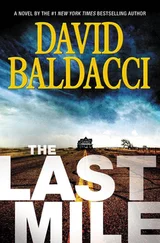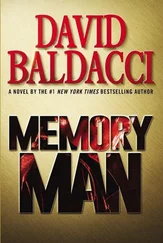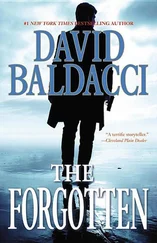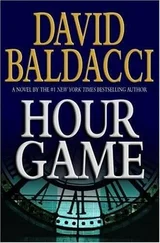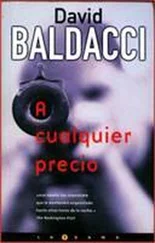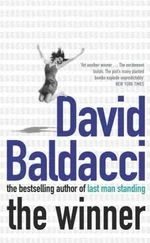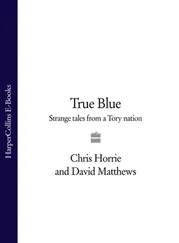So the little sister of the D.C. police chief was busted for armed robbery while caked on meth. Some dubbed her the Patty Hearst of the twenty-first century. The arrest, the trial, the sentencing, the appeals galloped by in a blur. Mona had gone for the carotid, and the female legal threshing machine had come within one appeal of putting Mace away for twenty years at a max a thousand miles away from D.C. She’d argued forcefully that Mace had gone so deeply undercover that she had eventually succumbed to the dark side. Mace remembered sitting in the courtroom watching the vitriolspewing DA pointing her finger at her and pounding the counsel table demanding that this “animal” be sent away for good. In her mind, Mace had killed the bitch over a hundred times. Yet when she finally had gotten the twenty-four-month sentence, just about everybody had turned on her and her sister.
When the van that had taken Mace in shackles arrived at the prison the news trucks were all lined up. It seemed the warden was reveling in the national spotlight, because he’d personally escorted Mace through the gauntlet of media and the hostile crowd. Trash was thrown at her along with insults of every conceivable degree of vulgarity. And still she’d shuffled along, her head as high as she could hold it, her eyes dead ahead, staring at the steel outer doors of her home for the next two years of her life. But even for tough Mace, the tears had started to gather in her eyes, and her lips had started trembling with the Orwellian strain of it all.
Then the crowd of onlookers had suddenly parted and a tall figure in full dress blues and four stars had marched out and started walking right next to Mace. The stunned look on the warden’s face showed that this development was totally unexpected. The crowds stopped screaming. Nothing else was thrown at Mace. Not with Chief of Police Elizabeth Perry with her gun and her badge striding right next to her sister, her face a block of granite as she stared down the crowd, willing them from hostility to numbness. That image, that final image of her sister next to her before Mace entered the house of hell, was really the only thing that had kept her going over those two years.
It was with this last thought that Mace finally fell asleep right on the floor. Two hours before dawn, she woke with a start, staggered to the bathroom, washed the crusted blood off her face in the bathroom, and got back into bed. Exhausted, she slept for nearly three hours, until her sister gently shook her awake.
Mace sat up in bed, looked around the room with an unsteady gaze.
Beth handed her a cup of black coffee and sat next to her. “You okay?”
Mace drank some of the coffee and lay back against the head-board. “Yeah, I’m good.”
“You look a little out of it. Bad dream?”
Mace tensed. “Why? Did you hear anything?”
“No, just thought it was probably normal. Your subconscious probably thinks there are still bars on the doors and windows.”
“I’m fine. Thanks for the java.”
“Anytime.” Beth rose.
“Uh…”
Beth looked down at her. “Something on your mind?”
“I remember what a media circus it was when I went to prison. I was just wondering.”
“Why there wasn’t a media army camped outside on your return?”
“Yeah.”
“The easy answer is you’re old news. It’s been two years. And every day there’s some national or international crisis, big company collapsing, people getting blown up, or some psycho with automatic weapons and body armor gunning people down at the local mall. And since you’ve been away hundreds of newspapers have folded, existing ones have cut their staff in half, and the TV and radio folks usually chase stuff far more bizarre than you to get the big ratings. But just in case, I sort of pulled a reverse strategy on the media grunts.”
Mace sat up. “What do you mean?”
“I offered to make you available to them for a full interview. I guess they figured if it was that easy, why bother?”
“That’s pretty slick, Beth. Busy day today?”
“Nope, didn’t you hear? Last night all crime miraculously went away.”
Mace showered and changed and checked her hair, face, and clothes in the mirror. Then she got mad at herself for even doing this. No matter what she looked like, her mother would find something wrong with her appearance. And frankly, it would be easy pickings for the woman.
Minutes later she fired up the Ducati. Immediately, Blind Man started howling from behind the door. She smiled and revved the gas. Soon she was heading due west, left D.C. proper, and entered Virginia over Memorial Bridge. As she cut in and out of traffic, Mace started to think about the upcoming encounter with the woman who had given birth to her over three decades ago.
Part of her would take prison again over that.
MACE RACED DOWN the straightaway of Route 50, weaving in and out of the dregs of the morning rush hour. The one traffic light in Middleburg caught her and she geared down the Ducati, finally braking to a stop. The street parking here leaned to Range Rovers and Jag sedans with an occasional Smart car thrown in for green measure. The small downtown area was hip in an upscale rural way. And here one could, for millions of dollars, purchase a really swell place to live. Years ago Mace and Beth had visited their mother, seen the fancy estate, dined at a nice restaurant, done some window shopping, and then gone back to busting bandits in D.C. One visit for Mace was truly enough.
Though Beth Perry was only six years older than her sister, she had played far more of a nurturing role for Mace than their mother ever had. In fact, the first person Mace could ever remember holding her was Beth, who was already tall and rangy at age nine.
Though he’d died when Mace was only twelve, Benjamin Perry had left quite an impression on his younger daughter. Mace could vividly recall sitting in her father’s small den doing her homework while her dad put together his legal arguments, oftentimes reading them to her and getting her input. She had wept harder than anyone at his funeral, the casket closed to hide the gunshot wounds to his face.
As she flew past lavish estates residing majestically on hundreds of acres, Mace knew that her mother had ascended to this level of wealth principally by design. She had methodically hunted and then snared a fellow who’d never worked a day in his life but was the only child of a man who had earned a fortune large enough to allow his offspring to live decadently for several generations. By then both daughters were grown and gone, for which Mace was enormously grateful. She was more coach fare and Target than private wings and Gucci.
Beth had gotten her height from her mother, who was several inches taller than her husband. Mace had always assumed that she inherited both her father’s average stature and his pugnacity. Benjamin Perry’s career as the U.S. attorney in D.C. had been tragically cut short, but during his tenure he’d prosecuted criminals through some of the most violent years in D.C. history, quickly becoming legendary for his scorched-earth pursuit of bandits. Yet he also had a reputation for always playing fair, and if exculpatory evidence came along, defense counsel always saw it. He had told Mace more than once that his greatest fear was not letting a guilty person go free, but sending an innocent one to prison. She had never forgotten those words, and that made the appointment of Mona Danforth to her father’s old position even more difficult for her to accept.
Benjamin Perry’s murder had never been solved. His daughters had taken various cracks at it over the years, with no success. Evidence was lost or tainted, witnesses’ memories faded away, or they died. Cold cases were the toughest to solve. But now that she was out of prison Mace knew, at some point, she had to try again.
Читать дальше
